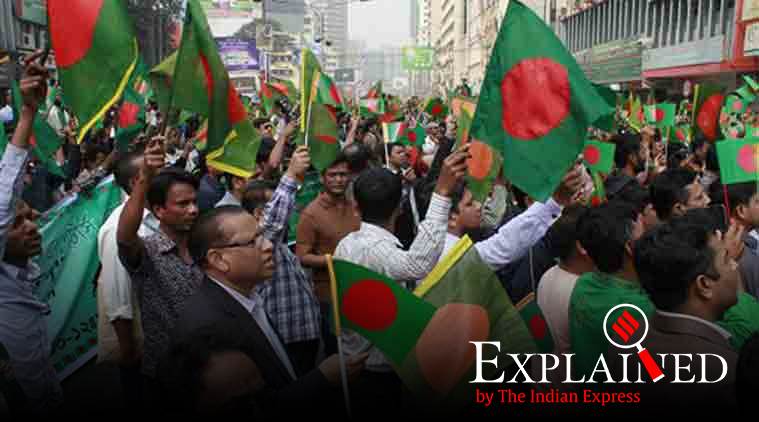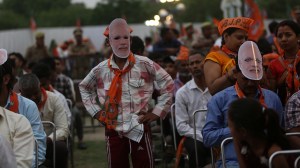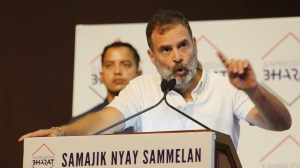- India
- International
Celebrating the world’s languages and cultural freedoms: Why February 21 matters
Along with March 26, the day on which Bangabandhu Sheikh Mujibur Rahman declared his nation’s independence from Pakistan, February 21 marks the anniversary of one of the defining moments in the creation of the Bangladeshi national consciousness.
 In 1948, the government of Pakistan, based in the western part of the new country, announced that Urdu would be its only state language. (Express Archives)
In 1948, the government of Pakistan, based in the western part of the new country, announced that Urdu would be its only state language. (Express Archives)
Ekushe February, or simply “Ekushe”, which is “The 21st” in Bangla, commemorates the day in 1952 when students of the University of Dhaka launched a nationwide protest against the imposition of Urdu on the people of what was then East Pakistan.
Along with March 26, the day on which Bangabandhu Sheikh Mujibur Rahman declared his nation’s independence from Pakistan, February 21 marks the anniversary of one of the defining moments in the creation of the Bangladeshi national consciousness.
International Mother Language Day
In 1999, in recognition of the Bengali people’s struggle for their language and culture, UNESCO announced that February 21 would be observed worldwide as International Mother Language Day. Read in Malayalam
In 2002, the United Nations General Assembly adopted its Resolution 56/262 on Multiligualism, and welcomed “the decision by the General Conference of the United Nations Educational, Scientific and Cultural Organization… that 21 February should be proclaimed ‘International Mother Language Day’”, and called upon UN Member States “to promote the preservation and protection of all languages used by peoples of the world”.
Background of the uprising
In 1948, the government of Pakistan, based in the western part of the new country, announced that Urdu would be its only state language. This sparked protests among the Bengali-speaking people of East Pakistan (now Bangladesh; then East Bengal), who saw the Bangla language as intrinsic to their national identity.

The Pakistani government reacted with a crackdown against the agitators, banning political meetings and rallies, using indiscriminate force, and carrying out sweeping arrests.
The group leading the protests largely comprised nationalist Bengali youth, and the heart of the agitation was located in university campuses, mainly the University of Dhaka and other colleges in the city.
Tensions were inflamed by Muhammad Ali Jinnah, the father of Pakistan and then the Governor General of the new country created after the Partition of India, who declared in Dhaka on March 21, 1948 that the language agitation was a “fifth column” intended to divide Pakistani Muslims, that that those who disagreed were the enemies of the Pakistani nation.
Jinnah underlined that “Urdu and only Urdu” would be the state language of the country, severely undermining the great pride that the Bengali people took in their language.
On January 27, 1952, Pakistan’s then Prime Minister Khawaja Nazimuddin, himself from Dhaka but an Urdu speaker, reiterated there would be no compromise with the “Urdu only” policy.
A few days later, the newly formed Sarvadaliya Kendriya Rashtrabhasha Karmi Parishad announced a protest, including hartals and rallies, on February 21.
📢 Express Explained is now on Telegram. Click here to join our channel (@ieexplained) and stay updated with the latest
This day in 1952
Police teargassed students who had gathered at the University of Dhaka in defiance of prohibitory orders, arrested many of their leaders, and ultimately opened fire on the students, killing several of them.
As the news of the police brutality spread, spontaneous protests broke out in the city, and a general strike began.
The following day, as thousands of men and women thronged the university campus to mourn the victims and protest the police action, police fired again, killing more of the protesters.
The protests continued for several days, and spread to many cities across East Bengal. The government of Pakistan gagged the media, and used pliable news organisations to spread fake news about the involvement of “Hindus and communists” in instigating the violence. Attempts to hold the police accountable were stonewalled.
Don’t miss from Explained | Sedition case for ‘pro-Pakistan’ slogans: What did SC rule on archaic law?
The legacy
The language movement became the central inspiration for the Bengali people’s struggle against a hegemonising Pakistani government.
Five of those killed in the agitation at the University of Dhaka were recognised by the independent nation of Bangladesh as “language martyrs”. They were: Abul Barkat, Abdul Jabbar, Rafiquddin Ahmad, Abdus Salman and Shafiur Rahman.
EXPRESS OPINION
Apr 25: Latest News
- 01
- 02
- 03
- 04
- 05









































